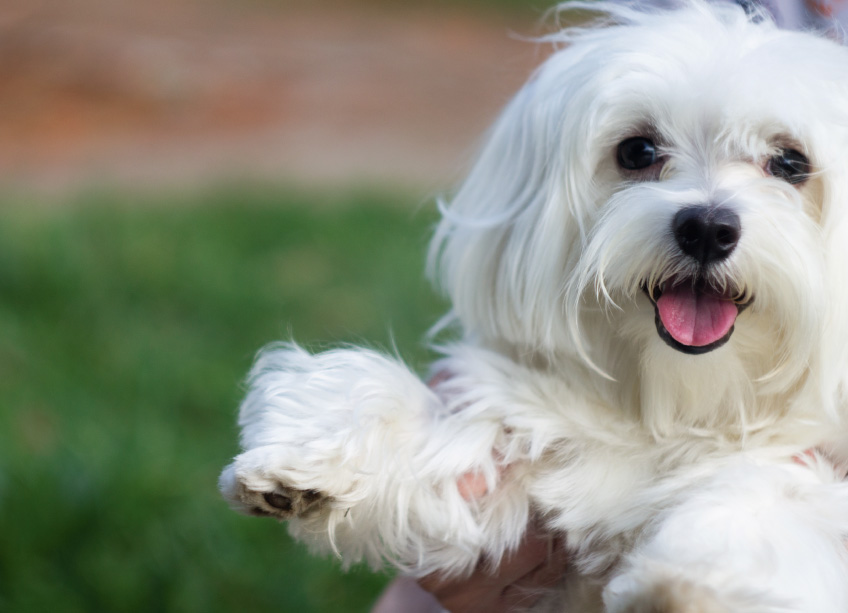Breed Maltese Bichon mix: Adorable Friend and infinite charm
Find out the many things that make up the Maltese Bichon mix in this complete guide, from their physical traits to training tips, health needs, and more.
Understanding the Origins of the Maltese Bichon Mix
A designer breed, the Maltese bichon is essentially the best characteristics of two great breeds, combining a European-based Bichon Frise, known for playfulness and companionship, with a Maltese prized for its elegance and devotion-the result is a dog that’s affectionate, fun-loving, and perfect for families or a person looking for a small, devoted pet.

Physical Characteristics of the Maltese Bichon Mix
- Weight: 8-12 pounds
- Height: 8-10 inches
- Coat: Gentle, hypoallergenic
Coat Colors and Types
The Maltese bichon coat can vary a little, but the most common one is white. It could have light cream or tan marks to differentiate it. Of course, their gentle coat that fluffs up gives them this very irresistible, cuddly teddy bear quality.
- Main Colors: White, light cream, tan highlights
- Distinctive Features: Soft, fluffy coat, hypoallergenic
- Physical Appearance: appears as a small, fluffy teddy bear
Personality and Temperament of the Maltese bichon
Maltese Bichon crossbreeds are friendly, gentle, and affectionate dogs that enjoy being around people. They are social animals and can be playful at times, but they do draw satisfaction from human interaction. That personality characteristic has made them so loving and lively, thus easily making them adjust to family life and coexist in harmony with children and other pets.
- Characteristics: Friendly, social, affectionate
- Good with Children: Gentle and playful
- Socialization: Extreme urge for contact with humans
Maltese bichon Temperament Around Other Pets
Maltese Bichon is excellent when it comes to compatibility around other pets. They get along well with the small as well as large animals. If socialized early on, they will not only tolerate the other dogs, cats, and pets but also get along better with them.
- Lives Well with Other Pets: Yes, especially when socialized early
- Tips and Tricks: Gradually introducing them to other pets in the household should help keep the peace
Apartment Life
Due to their small size and moderate exercise requirements, the Maltichons make the best apartment dogs. They do not require to have big backyards for happiness, but rather, they are satisfied with daily walks and playtime indoors. Their adaptability and size make them the best for urban dwellers and apartment residents.
- Best Living Situation: Apartment type and smaller houses
- Exercise Needs: Moderate with daily short walks
- Indoor Play: Adequate in stimulating

Training the Maltese Bichon Mix
Training a Maltese bichon is typically enjoyable since these dogs are clever and eager to please. Positive reinforcement using treats and praise is very effective. You can help them learn commands and good manners habits very quickly through consistent, short training sessions.
- Training Method: Positive reinforcement is highly effective
Top Commands: Sit, stay, come, and leash training
Consistency: Short, frequent training sessions are good
Socialization for a Well-Rounded Temperament
Socialization in the early life of a Maltese bichon is as important as developing a well-rounded character. Instead of getting to be scared or shy, early socialization can help them avoid these behaviors. Early puppy socialization can be done in puppy classes, playdates, and even dog parks.
Importance: High, does not develop anxiety and shyness.
Recommendations for Socialization: Dog parks, puppy classes, playdates
Ideal Age to Start: Puppyhood, early for maximum benefits
Exercise Requirements of the Maltese bichon
The Maltese bichon is lively with short legs. They require little exercise but enjoy an active lifestyle. This thrive on short walks, indoor play, and mental stimulation. They learn tricks very well, and these can also come as mental stimulation and discourage boredom.
Daily Exercise: 20-30 minutes
Favorite Activities to Engage: Walk, retrieve, and tug-of-war
Indoor Character: Absolutely loves to stay indoors
Grooming Needs of the Maltese Bichon Cross
Grooming is essential for a Maltese bichon coat. They need brush daily to keep their coat from being a tangle mess with matting. Also, they will eventually require some professional grooming to ensure the health of the coat and to keep it manageable.
Brushing-3 to 4 times a week,
Professional Grooming- every 6 to 8 weeks
Additional Grooming: Nail clipping, ear cleaning, oral care
Bathing and Hygiene Routine
Thid breed requires 3 to 4 baths a week to keep their coats clean and mud free. However, this would only be necessary every 4-6 weeks unless they get really dirty. Mild dog-friendly shampoo would keep their coat soft and healthy.
Bathing Schedule: Every 4-6 weeks
Type of Shampoo: Mild, non-toxic to dogs
Ear and Dental Care: Clean ears regularly; brush

Feeding and Nutritional Needs
To ensure that their energy levels are met and that they do not put on excess weight, a Maltese Bichon mix fed a balanced diet that is high in quality is truly essential. Do look for the protein-rich food and fiber when feeding and don’t overfeed. It’s always good advice to ask your vet what sizes to feed for age and activity will determine the necessary intake.
Diet Type: Good quality, protein-rich dog food
Portion Control: Feed according to the veterinary surgeon’s recommended serving sizes.
Avoid Overfeeding: This is one way to avoid obesity and other health problems
Health Problems Maltese bichon May Face
Regular vet check-ups and a preventive approach keep them in tip-top shape.
Patellar Luxation: Common small breed issue, which should be monitored for signs of discomfort.
Eye Health: Regular vet check-ups would generally prevent most vision issues.
Orphan Health: Brushing will help eradicate plaque formation
Average Lifespan:
12-15 years
Guaranteed to the Long-Life Span: Balanced diet, exercise, health care
Quality of Life: Excellent with constant care and love
Choosing a Good Breeder:
Breeders: Responsible and ethical breeders
Health Clearances: Both parent breeds
Adoption: Local rescues or shelters
Maltese bichon Puppies: What to Expect
Maltese bichon puppies need a calm and stable environment, plenty of socialization, and constant training. Moreover, the initial stages of Maltese bichon puppies will demand significant time spent on their training and grooming as both their coat and behavior significantly change for better after such treatment.
Energy Levels: Active puppyhood, needs exercise regularly
Early Grooming: A good way of getting accustomed to regular grooming
Sociability: Extremely essential in rearing the dog

Is the Maltese Bichon Mix Right for Me?
A great choice for a small dog and something sweet and easy to take care of. They Maltese bichon thrive well in apartments, are great family dogs, and can spend considerable years with lonely hearts and seniors. Low-shedding coat, gentle personality, and easy nature make them suitable for nearly any lifestyle.
Best Fit: Families, singles, seniors
Suitability: Excellent for city living and small homes
General Beauty: Such a refined combination of playfulness and loyalty
Conclusion: The Perfect Little Companion
The Maltese Bichon hybrid dog is graceful and beautiful and brings joy and friendship into any house. These playful dogs have such a gentle nature that their hypoallergenic coat does not scare you off. Any type of life – family, professional, or senior Maltese Bichon is sure to catch all your attention and integrate into life as an exemplary furry companion.
FAQ’S:
Is this breed good for families?
Yes, this breed is very playful and gentle.
Does this breed sheds alot?
No, it is a low shed breed and good for allergy sufferers.
How much exercise does this breed needs?
An exercise of half hour is must for them.
Are they easy to train?
Yes, they are highly trainable.
